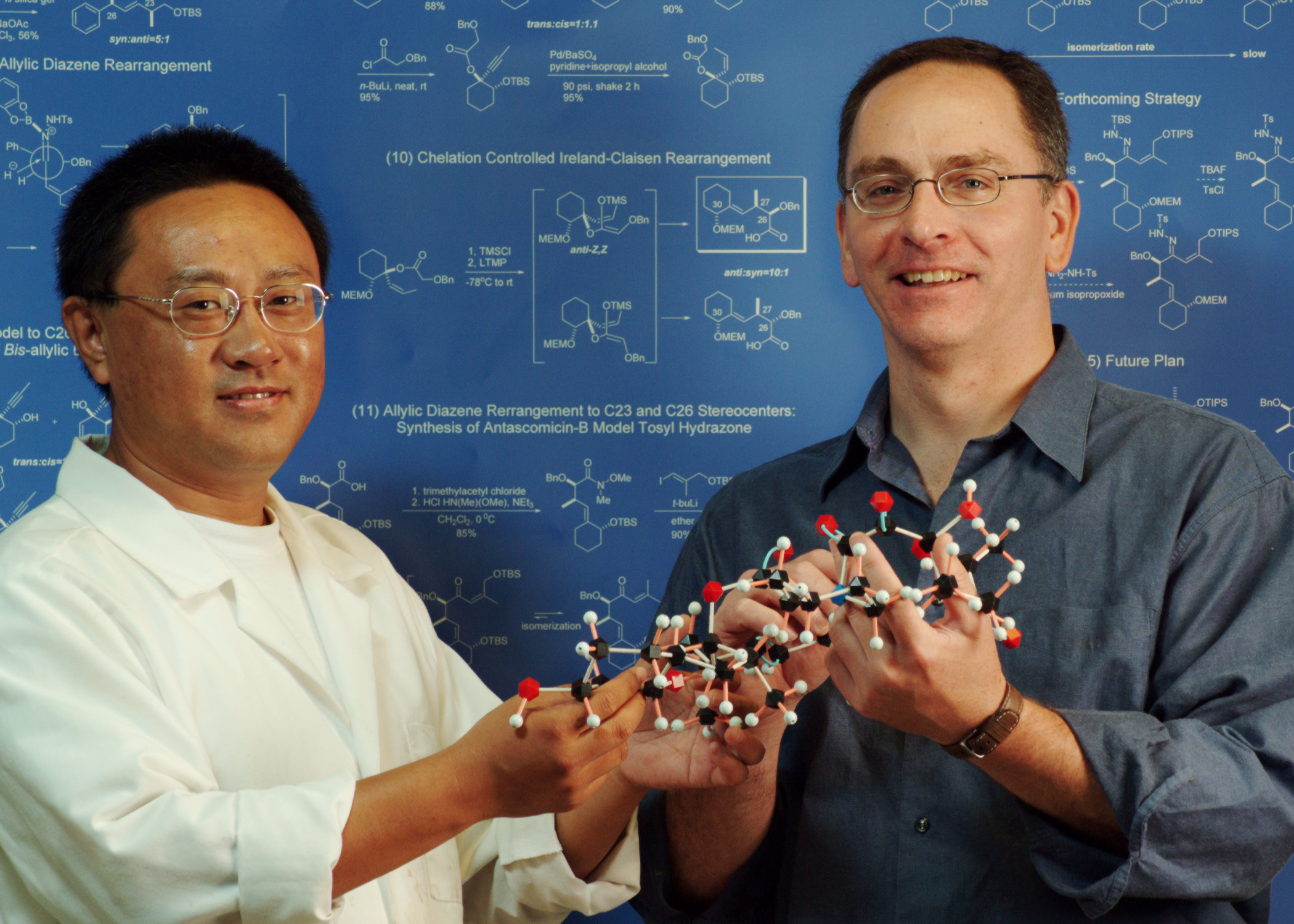
FAYETTEVILLE, Ark. — The molecule Antascomicin B has the potential to both regenerate nerve growth and help scientists better understand immune system suppression in organ transplants, but its scarcity in nature means it must be synthesized in sufficient quantities for its medicinal usefulness to be determined. A University of Arkansas researcher has received a $322,000 grant from the National Science Foundation to attempt to synthesize this molecule using new chemistry.
Creating a complex molecule from scratch is a complicated process, said Matt McIntosh, associate professor of chemistry and biochemistry in the J. William Fulbright College of Arts and Sciences.
“It’s kind of like a chess game,” he said. Researchers must create the right conditions in the right sequence in order to succeed. But with molecule building, like chess, success is not a sure thing.
“Now and then Mother Nature will checkmate us or lead us to a draw,” McIntosh said.
Graduate student Wei Qi demonstrated that the novel reactions would work in simple systems; the NSF grant will allow the researchers to combine these reactions to try to form this complex molecule.
This process could take years, McIntosh said. They have proposed building the molecule in 23 steps, and each step may succeed, fail or present its own individual challenges.
McIntosh likened the process to using a road map to plan a trip.
“You want to get from point 'a’ to point 'b’ using a chemical 'route,’” he said. “You have a plan, but sometimes you hit a road block and you have to plan a new route.” This can happen when a reaction has a low yield or doesn’t produce the expected results.
However, failed reactions don’t always disappoint, McIntosh said. Sometimes reactions that don’t go as planned offer unexpected benefits — results that might have applications outside of the intended outcome, McIntosh said.
“That’s the way a lot of new chemistry is discovered,” he said.
Another research group has synthesized Antascomicin B, but McIntosh’s approach offers two new advantages; first, showing that these new reactions can be used to synthesize complex molecules, and second, that the different chemistry involved will help explain more details of how the molecule works.
“New science builds on previous science,” McIntosh said. You only have to look as far as the medicine cabinet to see the results of this kind of chemical synthesis.
Contacts
Matt McIntosh, associate professor, chemistry and
biochemistry
J. William Fulbright
College of Arts and Sciences
(479) 575-4692, mcintosh@uark.edu
Melissa Lutz Blouin,
director of science and research communications
University
Relations
(479) 575-5555, blouin@uark.edu